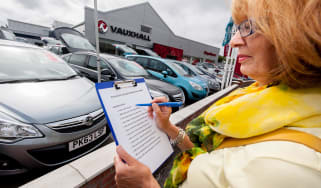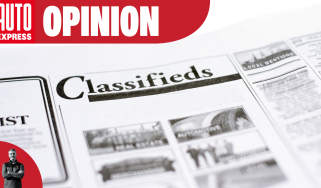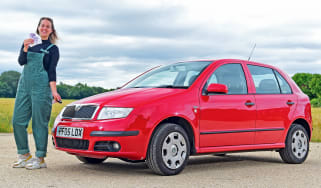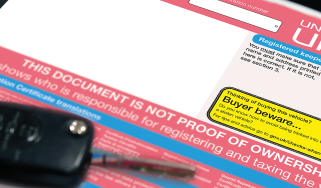What is the cost of leasing a car? Full breakdown of PCH lease costs
What makes up the cost of leasing a car? We break down everything you need to consider before signing on the dotted line
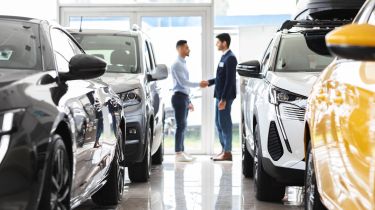
The cost of leasing a car in the UK is usually somewhere between £200 and £1,000 per month, but it does depend on a number of variables.
As well as the cost of the vehicle, with premium cars costing more than less expensive brands or smaller models, other elements that are incorporated into the lease include the length of any lease term, your proposed annual mileage, the type of damage waiver or insurance you require and whether or not maintenance is included. Some leasing agreements insist on maintenance being included, as the residual value of the car at the end of the term is factored into its monthly cost and correct servicing can be crucial to this.
As well as your monthly payments, there are other considerations to make within your car lease budget and you should always keep something aside to cover any unexpected end-of-term settlement fees should, for example, you have exceeded your agreed mileage or the vehicle is returned with damage.
How are monthly lease payments calculated?
In determining the monthly lease cost for a car, leasing providers will look at four main factors.
These are: the make model and specification of car that you have chosen; your initial rental payment at the start of the deal; the proposed length of the lease; and the mileage allowance you require to meet your needs.
The provider will calculate a lease cost based on those and other variables that contribute to the running costs of a vehicle, including its projected depreciation and its reliability record, especially where maintenance is included within the lease agreement.
Once fixed, the lease runs for a set term and isn't variable, meaning that the monthly payment you agree will remain the same throughout the duration of you leasing the car.
How do these factors impact the cost?
By far the biggest factor in determining the cost of your lease is the car that you choose. High-end models such as BMW, Mercedes-Benz, Land Rover and Audi will inevitably cost more than less expensive brands such as Dacia, MG or Suzuki.
However, you can normally work with your leasing company to bring your monthly cost in line with where you need it to be, to suit your household budget. For example, if you decide that you want a Mercedes-Benz instead of a Ford, then you can get your monthly payments down by paying a larger initial rental payment up front or extending the length of the lease.
The distance you drive also has a big impact on lease costs, as not only does a higher mileage increase the risk of a vehicle being damaged, but it will also reduce its resale value at the end of the leasing term.
You should try and choose a realistic mileage allowance for the lease that will accurately reflect your usage, and that has some wiggle room built in to cover things like family holidays, unexpected journeys or if you may potentially change jobs and have a longer commute. It's better to pay a little more for some extra allowance than it is to pay a penalty fee at the end of your lease.
What do I pay at the start of the lease?
As well as your monthly lease payment there are two things that you pay when your agreement begins. The first of these is a reservation fee but not all leasing companies will charge this as some will roll it into the total cost of the arrangement.
It's essentially an administration charge that you pay, in order for the leasing company to source, purchase and register your vehicle. Depending on the type of car, this can range from nothing to around £1,500. Once your car is sourced, you then need to pay your initial rental.

This works in the same way as a deposit would when buying a car via PCP or hire purchase – it's essentially a down-payment on the car, and with leasing companies the amount is often much lower than it would be on a scheme where you're buying the vehicle.
This is because you're only leasing and at no point will you ever have any equity in the car. This is worth considering, as although leasing is often the cheapest way of running a new car month-by-month, you're not actually buying anything other than the right to use it – you're simply hiring the car.
Depending on the value of the car, the initial payment is made-up of anywhere between one or 10 times the monthly lease payment. Generally speaking, the greater your initial payment, the lower your monthly lease cost will be.
Other costs of leasing a car
Once the initial payment and reservation have been paid, there are regular monthly outgoings you need to consider when leasing a car including your rental fee, insurance, maintenance costs and, indeed, fuel.
Monthly Rental
The monthly rental cost is easy to work with, as it will have been made clear at the very start of your lease agreement that this is the fixed amount you pay every month to the leasing company, for the life of the lease agreement. If all other conditions are met, then when you reach the end of the agreement you simply return the car and walk away.
Insurance
Some leasing companies include insurance within the overall cost, but the majority will require you to take out an independent policy. You will need to pay for this yourself and will be liable for any excess.
It's usually a condition of the lease, but the car has to have fully comprehensive insurance covering damage to the vehicle and also any third party liability. Your cover needs to start on the day you take delivery of the car and most lease companies will request to see a copy of the certificate before releasing the vehicle to you.
You must inform your insurance company that the car is a leased vehicle and not your own property.
Another thing to consider is GAP Insurance or Guaranteed Asset Protection. This will cover you if your leased car is damaged or stolen, as your insurance company may only pay out the car’s current value including depreciation, and not the total amount left on your leasing contract term.
Maintenance
As you will be leasing a new car, it will come with its full manufacturer’s warranty – and unless you're planning on leasing the car beyond this warranty period, it should protect you from any major expenditure related to mechanical failure.
However, a warranty does not cover everything. Wear and tear items such as brakes, tyres, clutches and even gearboxes aren't always covered by the manufacturers policy. Therefore, you should make an allowance from your household budget every month to pay for the general upkeep of your vehicle.
Many leasing providers do offer optional maintenance packages, which work in the same way as service plans to ensure that your car gets the regular servicing it requires, ensuring its warranty remains valid and its residual value is protected.
If you're planning on keeping the car for longer than three years, then after this time, you also need to factor in the cost of an annual MOT test, which is currently around £55 per year.
Fuel or electricity
While working out your lease car budget, do also look closely at the car’s fuel economy as this is likely to be one of the biggest chunks of your monthly motoring budget. Work out your mileage against the car’s quoted MPG figure to come up with a rough amount that you need to pay each month. Remember that official efficiency figures can be hard to achieve in the real world, depending on the type of driving you do.
If you're leasing an electric car – and particularly if you're driving an EV for the first time –also bear in mind that it’s far cheaper to charge your car at home than it is using a public charging network.
Costs at the end of a lease deal
If you’ve kept to the terms and conditions of a car lease then any costs at the end of it should be minimal unless you need to exit your car lease early.
Damage
The majority of leasing companies adhere to the British Vehicle Rental & Leasing Association (BVRLA) Fair Wear and Tear guidelines, which are there to protect customers just as much as they are the rental companies.
Within the guidelines, things like minor scuffs and scratches, light damage to alloy wheels, small chips to glass areas and acceptable wear to interior fabrics are all factored in and are unlikely to result in a penalty charge.
However, any significant damage to the car’s interior, exterior or heavy soiling (for example, a strong smell of cigarette smoke or burns to the interior fabric) are likely to result in repair or refurbishment charges. Similarly, a cracked windscreen or a heavily buckled alloy wheel may also land you with a fee.
Excess Mileage Charge
Quite a few lease drivers get caught out by excess mileage charges, as they often underestimate the mileage they think they will cover, believing it might work out cheaper in the long run. It rarely does.
Excess mileage will affect the car's resale value, which is factored into your monthly payments at the start of your lease. If you do exceed your annual mileage limit, then you pay for the excess on a per-mile basis.
If your circumstances change and you find yourself doing a higher mileage than when you started the lease – for example, if you change jobs – then it's a good idea to contact your leasing company straight away, as they may be prepared to amend your monthly rental charge to factor in the higher mileage you're now covering, helping avoid a nasty surprise at the end of your term.
Cost of leasing a car FAQs
Frequently Asked Questions
From a cost perspective, leasing a car has two major advantages. The first is that it’s nearly always cheaper than buying a car on hire purchase, or taking out a PCP, which is in many ways a halfway house between leasing and buying.
The initial payments are smaller and the monthly payments are normally less as well. You also don't need to worry about depreciation, as you are never the car's owner – if its value drops by more than the leasing company projects at the start of the contract, that's their problem and not yours.
Now take a look at the best car leasing deals...
Find a car with the experts


